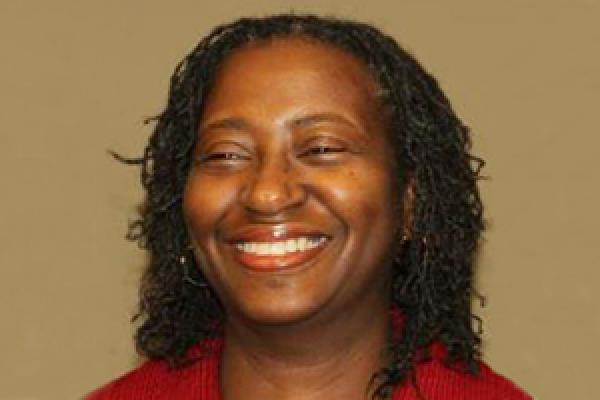Beverly Moss continues to make an impact with community writing

The immense dedication Beverly Moss has expressed for community writing over more than three decades has earned her the 2021 Distinguished Engaged Scholar in Community Writing Award from the Coalition for Community Writing.
“It was nice to know people think so highly of my contributions to the field,” said Moss, an associate professor and director of second-year writing in the Department of English.
Two former Ohio State graduate students, Sherita Roundtree and Michael Blancato, both of whom earned PhDs in English from Ohio State in 2019, led the official nomination for Moss, showing just how much her students appreciate the impact she’s had on the field. The Coalition for Community Writing not only consists of academics but also people in varying roles that foster community writing by emphasizing the intersection of teaching, research and service.
Moss’s passion for community writing intensified during her doctorate studies at the University of Illinois at Chicago in the late ’80s. Inspired by Shirley Brice Heath’s research on the literacy practices of African American communities in the Piedmont region of the Carolinas, Moss visited churches with a predominantly Black population for her PhD dissertation. She wrote about what these communities stood for within the larger African American community and how church sermons can be seen as community texts.
Accepting a job at Ohio State allowed her to continue researching a minister from Chicago who preached at a Columbus church. Her book A Community Text Arises: A Literate Text and a Literate Tradition in African-American Churches was an extension of her previous research, with additional information that helped her rethink the study and elaborate more on community identity relating to the words of that particular minister.
Since then, Moss has kept much of her scholarship about literary practices in subsets of the African American population, without focusing on academia, to change how these communities are seen. She has been working with Phenomenal Women, a nonprofit organization that empowers women to achieve their personal and professional goals, after a former Ohio State graduate student suggested Moss study the club a few years ago.
“Their reading, writing and technology practices are very much tied to making the club work,” she said. “There’s this interesting motivation for women in the club to engage in new literacy practices.”
One account that interested Moss was a club member who became treasurer. Despite a lack of experience managing finances, the treasurer learned the intricacies of financial planning and budgeting for the club, later applying those lessons to her own life.
After completing her initial research with Phenomenal Women, Moss continues to receive invites from the club and enjoys seeing the members thrive. She has published scholarly articles about the club’s literacy practices and has been working on a book in between other projects.
In 2021, Moss teamed up with a group of former Ohio State graduate students who were all involved with the service-learning course “Literacy Narratives of Black Columbus” to collect data and examine the significance the course had on students and Black communities in Columbus for an upcoming article.
Created and first taught by former colleagues Cindy South and Louis Allman, Moss took over “Literacy Narratives of Black Columbus,” which examines a different community within the Black population, such as dancers, small business owners and educators, and gives students the opportunity to learn about their literacy practices and create projects that can be used by the groups.
We have Ohio State students, some of whom know very little about the Black communities in Columbus, who start to get a richer picture of the complexity of Black communities,” Moss said. “There’s not a monolithic Black community, and they start to understand how literacy plays a role in those communities.”
In addition to teaching the course, Moss also ensures graduate students have the proper skills, tools and support to teach it. “Literacy Narratives in Black Columbus” will be taught in fall 2022.
Her teaching and mentorship star power extends beyond Ohio State’s campus, as Moss has been director of the Bread Loaf Teacher Network for five years. This professional development network primarily consists of public school teachers who work with underserved student populations and who are students or graduates of the Bread Loaf Teacher master’s program. They learn about transformative teaching, including seeing students as valuable resources and getting students to advocate for community change through literacy practices.
In between teaching classes, leading a professional development network and researching African American community contexts, Moss has found time to keep improving the textbook Everyone’s an Author as part of the authorship team working on the fourth edition. While it doesn’t directly relate to community writing, it’ll prove that thoughtful communication isn’t for a select few.
“What we try to show is the ways that people in their own lives are using writing,” Moss said. “Authors are not just the people who get paid and publish the books that we see in bookstores.”
